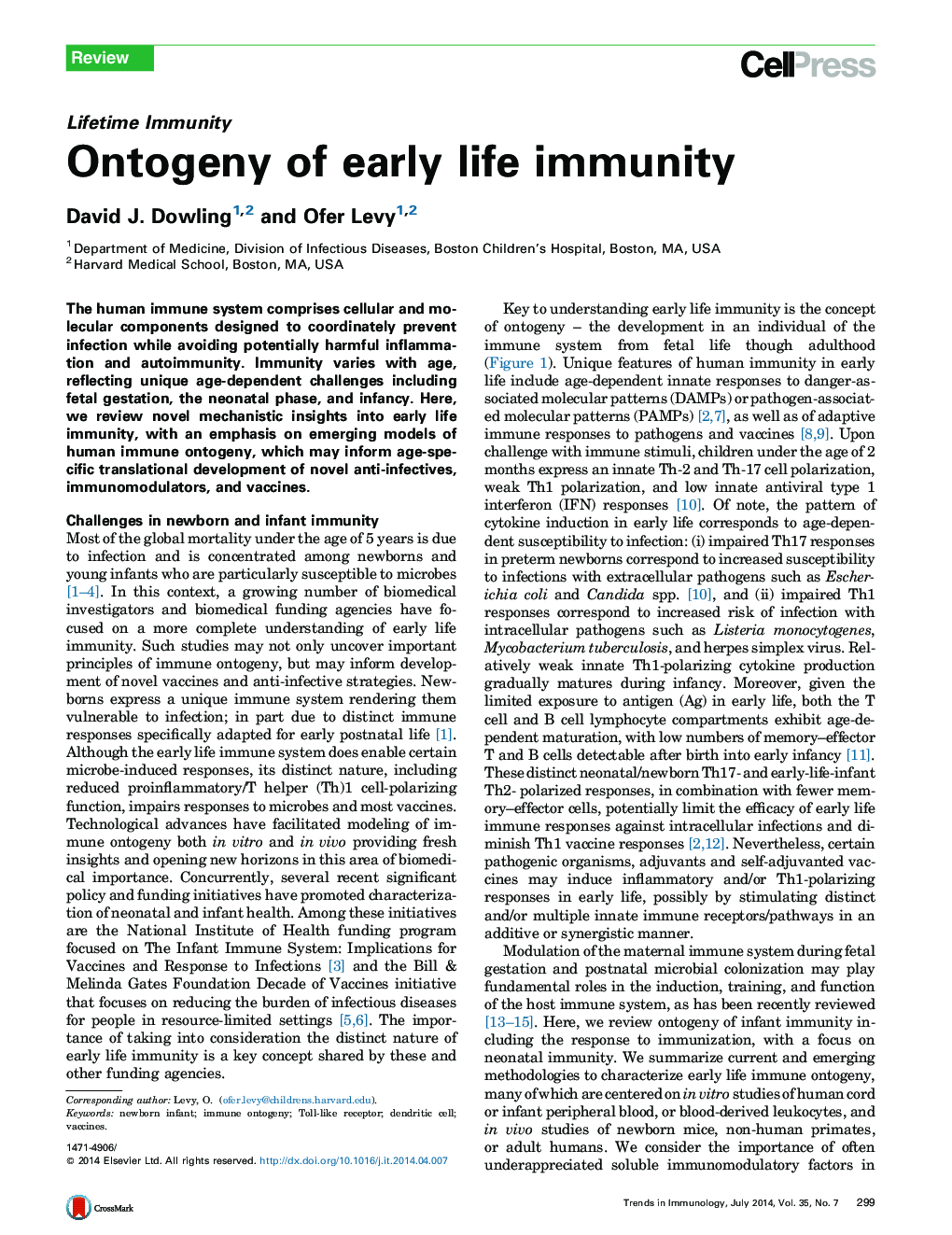| Article ID | Journal | Published Year | Pages | File Type |
|---|---|---|---|---|
| 4359900 | Trends in Immunology | 2014 | 12 Pages |
•There is a continuing high global burden of infections in the very young.•Immunity is not static; it changes with age, with many unique features in early life.•Newborns and young infants have distinct immune ontogeny and responses to microbes.•Emerging in vitro assays may more accurately model age-specific human immune ontogeny.•Development of novel age-specific vaccine formulations and delivery systems is likely warranted.
The human immune system comprises cellular and molecular components designed to coordinately prevent infection while avoiding potentially harmful inflammation and autoimmunity. Immunity varies with age, reflecting unique age-dependent challenges including fetal gestation, the neonatal phase, and infancy. Here, we review novel mechanistic insights into early life immunity, with an emphasis on emerging models of human immune ontogeny, which may inform age-specific translational development of novel anti-infectives, immunomodulators, and vaccines.
